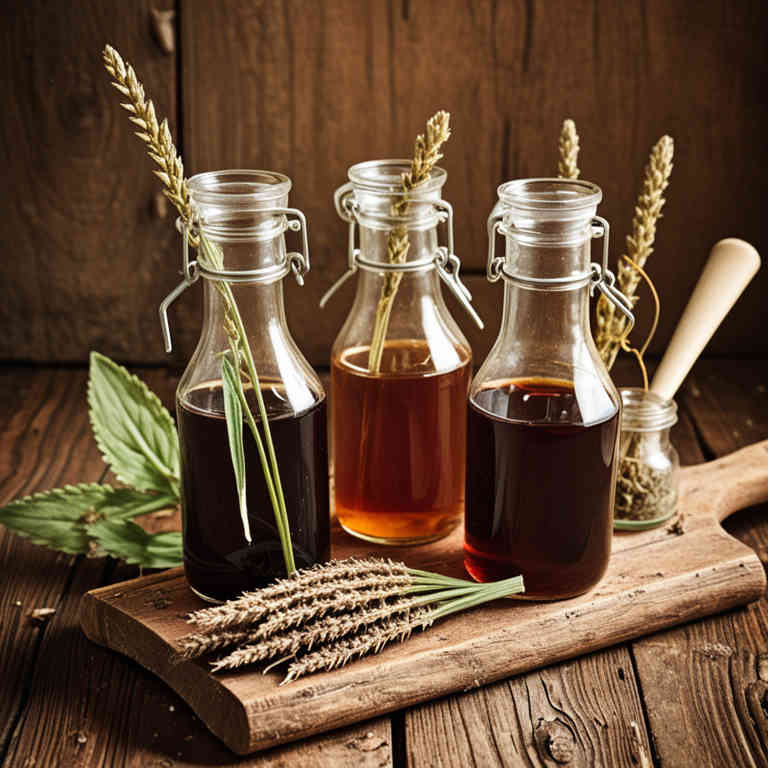Plantago major syrup for medicinal use

Plantago major syrup is a herbal preparation made from the fresh or dried leaves of the common plantain plant.
It is commonly used in herbalism to soothe respiratory conditions such as coughs, bronchitis, and sore throats due to its demulcent and expectorant properties. The syrup helps to coat and protect irritated mucous membranes, making it beneficial for easing discomfort in the throat and lungs. It is also sometimes used to support digestive health and reduce inflammation.
This preparation is typically prepared by simmering the leaves in water and then reducing the liquid to form a syrup.
Uses
Plantago major syrup has been used to treat respiratory and digestive ailments for centuries.
Historically, it was valued in ancient Greek and Roman medicine for its soothing properties, often used to alleviate coughs and sore throats. In traditional herbal practices, it was also applied topically to wounds and skin irritations due to its anti-inflammatory effects. Modern usage continues to include its application for cough suppression and as a mild digestive aid, supported by some scientific studies on its mucilage content.
Today, it remains a popular remedy in both homeopathic and conventional herbal medicine.
Benefits
Plantago major syrup has health benefits such as soothing respiratory issues, reducing inflammation, and supporting digestive health.
It is traditionally used to alleviate symptoms of coughs, bronchitis, and sore throats due to its mucilage content, which coats and protects the mucous membranes. The syrup may also help with gastrointestinal discomfort by promoting healthy digestion and reducing irritation in the stomach and intestines. Additionally, it is believed to have mild diuretic properties that can aid in detoxification and fluid balance in the body.
Overall, Plantago major syrup is valued for its natural healing properties and is often used in herbal medicine to support overall wellness.
Constituents
Plantago major syrup active constituents include mucilage, flavonoids, tannins, and polysaccharides.
These compounds contribute to its soothing and anti-inflammatory properties. Mucilage helps in reducing irritation and promoting healing in the digestive and respiratory tracts. Flavonoids act as antioxidants, supporting overall health and immune function.
Tannins provide astringent effects, which can help in reducing excess secretions and inflammation.
Preparation
To make Plantago major syrup, first gather fresh or dried Plantago major leaves and wash them thoroughly.
Next, crush the leaves to release their juices and simmer them in water for about 30 minutes to create a herbal infusion. After straining the liquid, combine it with honey or sugar syrup and simmer gently until the desired consistency is achieved. Allow the mixture to cool and store it in a sterilized jar in a cool, dark place.
This syrup can be used to soothe sore throats, reduce inflammation, and support respiratory health.
Side Effects
Plantago major syrup may lead to gastrointestinal discomfort such as nausea, vomiting, or diarrhea in some individuals.
It is derived from the common plantain plant and is often used for its mild laxative and anti-inflammatory properties. However, excessive use can result in dehydration due to its mild diuretic effect. Some people may experience allergic reactions, including skin rashes or itching.
It is important to consult a healthcare professional before using this preparation, especially for prolonged periods or in high doses.